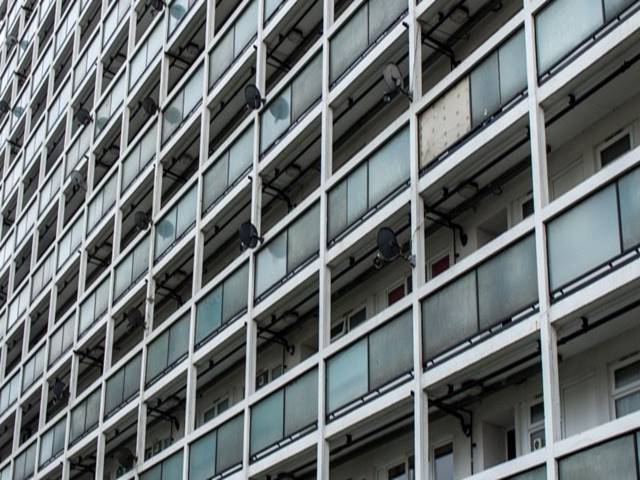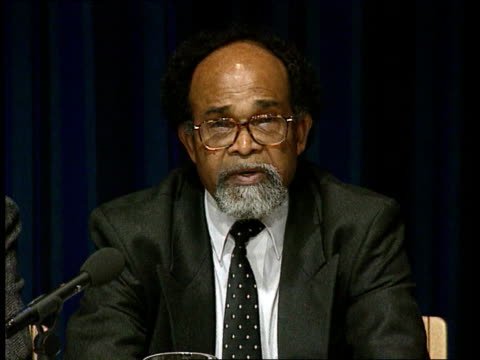The abduction
Imagine the scenario where five-and-a-half months ago your son, aged 6, has been taken from the UK by your ex-spouse to a country where you and your ex-spouse were born but where your son has never lived. Your ex-spouse told you that they were going to take your son on holiday for a week in Europe, to this you agreed. They then used this ‘holiday’ as an opportunity to not only suspend your fortnightly contact with your child but remove him from your care forever by using the holiday as a ‘cover’ for what was in reality a well-considered ‘permanent’ move from England to X, a Hague Convention Country, outside Europe.
Recently, a mutual friend living in England informed you that he had heard in the community that your ex-spouse now has a job in X and that your son has been enrolled into a school in X. He is regularly meeting his relatives and participates in extra-curricular activities with new friends.
What is the Hague Convention 1980 and how does it apply to my case?
‘It is a multilateral treaty developed by the Hague Conference on Private International Law that provides an expeditious method to return a child internationally abducted by a parent from one member country to another.’ (Wikipedia)
Country X is a Hague Convention Country in that it is a signatory to the Hague Convention 1980.
Article 3
The removal or the retention of a child is to be considered wrongful where: –
a) it is in breach of rights of custody attributed to a person, an institution or any other body, either jointly or alone, under the law of the State in which the child was habitually resident immediately before the removal or retention; and
b) at the time of removal or retention those rights were actually exercised, either jointly or
alone, or would have been so exercised but for the removal or retention.
The rights of custody under a) above may arise, for example, by law, a judicial or administrative decision, or an agreement having legal effect.
At the time your ex-spouse removed your child you had a child arrangements order in place to see your son fortnightly. In these circumstances the removal of your son was wrongful.
Article 4
The Convention shall apply to any child who was habitually resident in a Contracting State immediately before any breach of custody or access rights. The Convention shall cease to apply when the child attains the age of 16 years.
Your child has lived in the UK for some six years and is therefore deemed to have been habitually resident in the UK at the time that your ex-spouse removed him from the UK.
How do I go about returning my son to the UK?
A starting point may be:
The International Child Abduction and Contact Unit (ICACU)*
Office of the Official Solicitor
Victory House
30-34 Kingsway
LONDON
WC2B 6EX
United Kingdom
DX 141423 Bloomsbury 7
T: +44 (0)20 3681 2608 (10am–4pm Mon – Fri)
In an emergency, outside these hours contact Reunite, tel 0116 2556 234.
F: +44 (0)20 3681 2763
W: https://www.gov.uk/return-or-contact-abducted-child
E: ICACU@offsol.gsi.gov.uk (new requests and general enquiries only)
The ICACU is open Mon to Fri 9am to 5pm but the office is not open to the public.
*Central Authority for England and Wales (for the 1980 Hague Convention, for Brussels IIa and for the 1980 European Convention)
Central Authority for England (for the 1996 Hague Convention)
Has my son’s habitual residence now changed five-and-a-half months later?
The short answer to this ‘now’, is possibly. The long answer is not as straightforward.
In Re B (A Child) (Custody Rights: Habitual Residence) [2016] EWHC 2174 a number of Supreme Court decisions addressing the child’s habitual residence in the context of child abduction cases were considered by Hayden J. The following principles for determining habitual residence were confirmed:
(i) The habitual residence of a child corresponds to the place which reflects some degree of integration by the child in a social and family environment;
(ii) The test is essentially a factual one which should not be overlaid with legal sub-rules or glosses. It must be emphasised that the factual inquiry must be centred throughout on the circumstances of the child’s life that is most likely to illuminate his habitual residence;
(iii) In common with the other rules of jurisdiction in Council Regulation (EC) No 2201/2003 (“Brussels IIA”) its meaning is “shaped in the light of the best interests of the child, in particular on the criterion of proximity”. Proximity in this context means “the practical connection between the child and the country concerned”;
(iv) It is possible for a parent unilaterally to cause a child to change habitual residence by removing the child to another jurisdiction without the consent of the other parent;
(v) A child will usually but not necessarily have the same habitual residence as the parent(s) who care for him or her;
(vi) Parental intention is relevant to the assessment, but not determinative;
(vii) It will be highly unusual for a child to have no habitual residence. Usually a child lose[s] a pre-existing habitual residence at the same time as gaining a new one;
(viii) In assessing whether a child has lost a pre-existing habitual residence and gained a new one, the court must weigh up the degree of connection which the child had with the state in which he resided before the move;
(ix) It is the stability of a child’s residence as opposed to its permanence which is relevant, though this is qualitative and not quantitative, in the sense that it is the integration of the child into the environment rather than a mere measurement of the time a child spends there;
(x) The relevant question is whether a child has achieved some degree of integration in social and family environment; it is not necessary for a child to be fully integrated before becoming habitually resident;
(xi) The requisite degree of integration can, in certain circumstances, develop quite quickly (article 9 of Brussels IIA envisages within three months). It is possible to acquire a new habitual residence in a single day;
(xii) Habitual residence was a question of fact focused upon the situation of the child, with the purposes and intentions of the parents being merely among the relevant factors. It was the stability of the residence that was important, not whether it was of a permanent character.
There was no requirement that the child should have been resident in the country in question for a particular period of time, let alone that there should be an intention on the part of one or both parents to reside there permanently or indefinitely.
When the UK court is deciding whether your son is habitually resident in the UK, the following principles would be relevant:
(i) The factual inquiry must be centred throughout on the circumstances of the child’s life.
Lady Hale in Re LC [2014] 1 FLR 1486 at para 62:
62 ‘…this is a child-centred approach. It is the child’s habitual residence which is in question. It is the child’s integration which is under consideration. Each child is an individual with his own experiences and his own perceptions. These are not necessarily determined by the decisions of his parents, although sometimes these will leave him with no choice but to buckle down and get on with it………The environment of an infant or very young child is (one hopes) a family environment and so determined by reference to the person with whom he lives. But once a child leaves the family environment and goes to school, his social world widens and there are more factors to be taken into account…’
Notwithstanding any view that the court may have as to your ex-spouse’s habitual residence, the focus should be placed on your son and whether he has integrated into X as a matter of fact. In establishing his habitual residence it is necessary to consider his family environment in X and his social world in terms of school and extra-curricular activities.
(ii) It is possible for a parent unilaterally to cause a child to change habitual residence by removing the child to another jurisdiction without the consent of the other parent.
Lord Reed in AR v RN [2015] 2 FLR 503 at para 17:
17…‘it follows from the principles adopted in A v A and the other cases that the Court of Appeal of England and Wales was right to conclude in re H (Children) (Reunite International Child Abduction Centre intervening) [2014] EWCA Civ 1101; [2015] 1 WLR 863 that there is no “rule” that one parent cannot unilaterally change the habitual residence of a child.’
The fact that your ex-spouse ‘retains’ your son in X in circumstances where there is deemed to have been a ‘wrongful removal’ from England does not mean that your son cannot be habitually resident in X.
(iii) In assessing whether a child has lost a pre-existing habitual residence and gained a new one, the court must weigh up the degree of connection which the child had with the state in which he resided before the move.
In X, your son has connected with his family in that country. He appears to have made connections at school and through his social activities, suggesting that he may now have a greater degree of connection with X, rather than with England. The court will have to weigh up whether this is a greater degree of connection than he previously had when he was in the UK.
The cases do not give specific guidance on the period of time that may lead to losing habitual residence – see further discussion below.
(iv) The habitual residence of a child corresponds to the place which reflects some degree of integration by the child in a social and family environment. It is not necessary for a child to be fully integrated before becoming habitually resident and that the requisite degree of integration can, in certain circumstances, develop quite quickly. It is possible to acquire a new habitual residence in a single day.
Lord Wilson in Re B [2016] 1 FLR 561 at paragraph 39:
39 It is worthwhile to note that the new criterion requires not the child’s full integration in the environment of the new state but only a degree of it. It is clear that in certain circumstances the requisite degree of integration can occur quickly. For example article 9 of Regulation B2R , the detail of which is irrelevant, expressly envisages a child’s acquisition of a fresh habitual residence within three months of his move. In the J case, Lord Brandon suggested that the passage of an “appreciable” period of the time was required before a fresh habitual residence could be acquired. In Marinos v Marinos [2007] EWHC 2047 (Fam); [2007] 2 FLR 1018, para 31, Munby J doubted whether Lord Brandon’s suggestion was consonant with the modern European law; and it must now be regarded as too absolute. In A v A , at para 44, Lady Hale declined to accept that it was impossible to become habitually resident in a single day.
Lady Hale in A v A [2014] 1 FLR 111 at paragraph 44:
44…I share Lord Hughes’ view that the third and fourth points made by Lord Brandon are best seen as helpful generalisations of fact, which will usually but not invariably be true, rather than as propositions of law. There has been a tendency to construe this fourth statement as if it were a statute, and debate the meaning of “appreciable time”. I would not accept that it is impossible to become habitually resident in a single day. It will all depend upon the circumstances.
Lord Wilson in Re B [2016] 1 FLR 561 at paragraph 45:
45 I conclude that the modern concept of a child’s habitual residence operates in such a way as to make it highly unlikely, albeit conceivable, that a child will be in the limbo in which the courts below have placed B. The concept operates in the expectation that, when a child gains a new habitual residence, he loses his old one. Simple analogies are best: consider a see-saw. As, probably quite quickly, he puts down those first roots which represent the requisite degree of integration in the environment of the new state, up will probably come the child’s roots in that of the old state to the point at which he achieves the requisite de-integration (or, better, disengagement) from it.
The case law demonstrates that it is not necessary for your son’s integration in X to be complete. However, the consequence of his integration is that he may lose his habitual residence in the UK. The rule that there should be an appreciable time before he acquires his ‘new’ habitual residence or loses his ‘old’ habitual residence is now redundant. The fact that he moved to X, merely a couple of months ago does not mean that he cannot have acquired habitual residence in X. Your son could have acquired it within a matter of days, weeks or months!
(v) It is the stability of a child’s residence as opposed to its permanence which is relevant, though this is qualitative and not quantitative.
Lord Reed in AR v RN [2015] 2 FLR 503 at para 16 and 21:
16…It is therefore the stability of the residence that is important, not whether it is of a permanent character. There is no requirement that the child should have been resident in the country in question for a particular period of time, let alone that there should be an intention on the part of one or both parents to reside there permanently or indefinitely.
21…As was explained in A v A , the important question is whether the residence has the necessary quality of stability, not whether it is necessarily intended to be permanent.
The duration of your son’s time in X is unimportant but rather whether his life in X is more stable than his life in England prior to his removal. The relevant factors as to whether he has achieved a stable life in X are (i) your ex-spouse’s employment, (ii) attendance at school, (iii) integration with close family members and (iv) social integration with non-family members. The question is whether the quality of his life has improved.
Is there anything else my ex-spouse can do to prevent my son being returned to the UK?
Even if the UK court finds that your son was habitually resident in the UK and therefore the UK has jurisdiction to deal with the case, under Article 13b of the Hague Convention the UK court is not bound to order the return of your son if your ex-spouse establishes that:
(b) there is a grave risk that his or her return would expose the child to physical or
psychological harm or otherwise place the child in an intolerable situation.
The judicial or administrative authority may also refuse to order the return of the child if it finds that the child objects to being returned and has attained an age and degree of maturity at which it is appropriate to take account of its views.
In considering the circumstances referred to in this Article, the judicial and administrative authorities shall take into account the information relating to the social background of the child provided by the Central Authority or other competent authority of the child’s habitual residence.
If your ex-spouse were to refuse the return of your son on the grounds that physical contact with you would cause him trauma or psychological harm and if this was supported by an opinion from a psychiatrist or psychologist the court may be persuaded not to grant an order to return the child from country X.
In reality, this is likely to be properly assessed by a wealth of expert evidence, including evidence from a Guardian appointed in the case and liaison with the Central Authority in country X.
An objection to return to the UK, said to have been expressed by your son, would carry little weight given his age.













